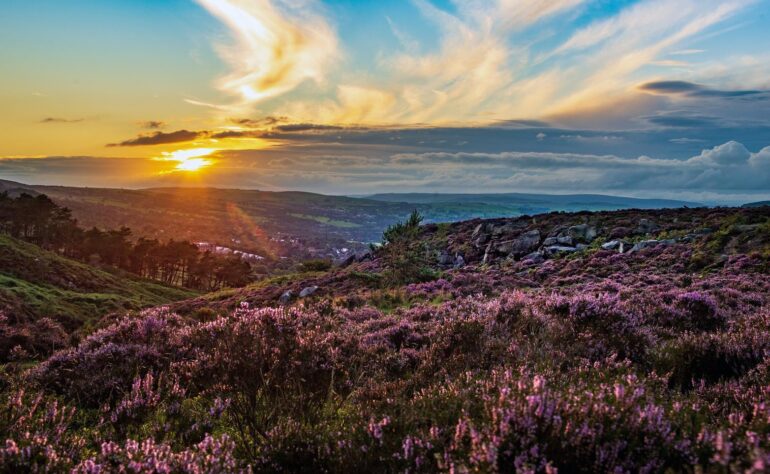The Government’s independent advisor on climate change has called for a comprehensive land use strategy to help tackle climate change.
The Climate Change Committee warns in its newly-released Progress Report to Parliament that there is a high risk of the UK not achieving net-zero without widescale land use change, which includes restoration of carbon-rich upland peatlands and expansion of native woodlands.
Peatlands are the single largest natural terrestrial carbon store but decades of intensive management has left them degraded and converting from carbon stores into carbon emitters. The role of woodlands in carbon storage is also well established.
Yet delivery of land-use change measures that are necessary to reduce greenhouse gas emissions from degraded peatlands and to promote carbon sequestration via tree planting have yet to meet delivery targets.
Commenting on the Climate Change Committee’s recommendations Luke Steele, Executive Director of Wild Moors, said: “Today’s climate conscious landowners want nothing to do with intensive practices which fuel carbon emissions, biodiversity loss and natural disasters like flooding and wildfires. Wild Moors is celebrating the Climate Change Commission’s forward-thinking vision which is leading a revolution in land use change for nature, climate and people.”
Scientists have concluded that moors restored for nature deliver a wide range of environmental, social and economic benefits including carbon storage, biodiversity net gain, improved water quality, and flood and wildfire mitigation.
Research published by Terra Nation also estimates that restoration of high-carbon potential peatlands in Britain’s uplands has an economic value of over £470 million, with expansion of native woodland likely to add to this.
The Climate Change Committee has also recommended plans are drawn up for a ‘just transition’ to better enable a blend of private and public investment in restoring upland habitats and to provide the skills and training needed to support fair access to the employment opportunities this creates.
Ends
Notes for editors
Wild Moors campaigns to unlock an area of uplands the size of Greater London from grouse shooting for nature restoration by 2030. By working with communities, companies and governments to solve challenges facing the upland environment Wild Moors acts as a catalyst for creating effective and lasting change.
